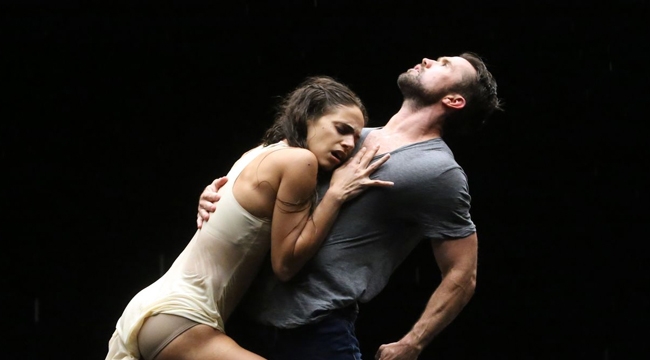
People pass videos to me all the time. “This is AMAZING!” and “You’ll laugh your ass off” kind of videos. But it’s not often that someone tells me that a video made them cry and feel represented. That’s what happened when my friend, Chris, told me to watch Mac come out to his father and the haunting and graceful dance that followed on the season finale of It’s Always Sunny In Philadelphia. To me, the scene was an arresting example of movement and music’s power to tell a story without words. To my friend Chris, it connected in a more personal way. “People say ‘I feel seen’ a lot these days, but Jesus, I’ve never seen a TV character admit he just doesn’t fit in with the gay community and damn, I felt seen.”
Always Sunny is a show that I adore, in part because of the way that it defies formula, but this was a clear tonal shift and I didn’t expect such beauty or emotional heft. And, aside from the sheer power of it, that’s probably the thing that I love most about the existence of this surprising moment in the show’s long history: that Rob McElhenney and company didn’t feel beholden to the idea of what a comedy is or what people assume their creation is supposed to be. Instead, they felt beholden to the story that they wanted to tell and the statement that they wanted to make. And they followed that thread to a marvelous place that defies the labels that we slap onto things.
It’s easy and convenient to do that — to put art and artists into a box. Safe. This person can only play a certain kind of role or do a certain kind of work, this show can only tells these kinds of stories. Some people get annoyed when those lines blur, and there’s a side of me that gets that, but it’s a mistake to think that these things are exclusively for us. Art isn’t a product like any other. Our satisfaction isn’t the only indicator of success. To be honest, it’s not even a necessity.
Along those same lines, it’s good when artists avoid (or break free from) the trap of only chasing the approval of the audience (and the trappings that come with that). McElhenney’s courage to show a completely different pose and risk the alienation of some of his hard-won fans should, hopefully, inspire others to take those kinds of creative chances. To be sure, having a certain kind of stability (like being 13 seasons into a show) probably makes it easier to do that, but the broad acclaim being showered upon Always Sunny and McElhenney is a reminder that these big swings can be well worth the attempt. Anytime something different flourishes it feels like the door opens just a little bit wider for the next person through.
This is all a longish way of affirming the idea that, to toss out another over-used expression, “we contain multitudes” and we should ache for the shows and movies we love to prove that point and challenge us from time to time. Predictability and comfort food is fine sometimes, but when we show support for acts that are unexpected — even if they fail — we embolden artists to keep trying new things. And, because we lean so heavily on art to entertain and inspire us, life becomes just a little less boring and more interesting as a result.






